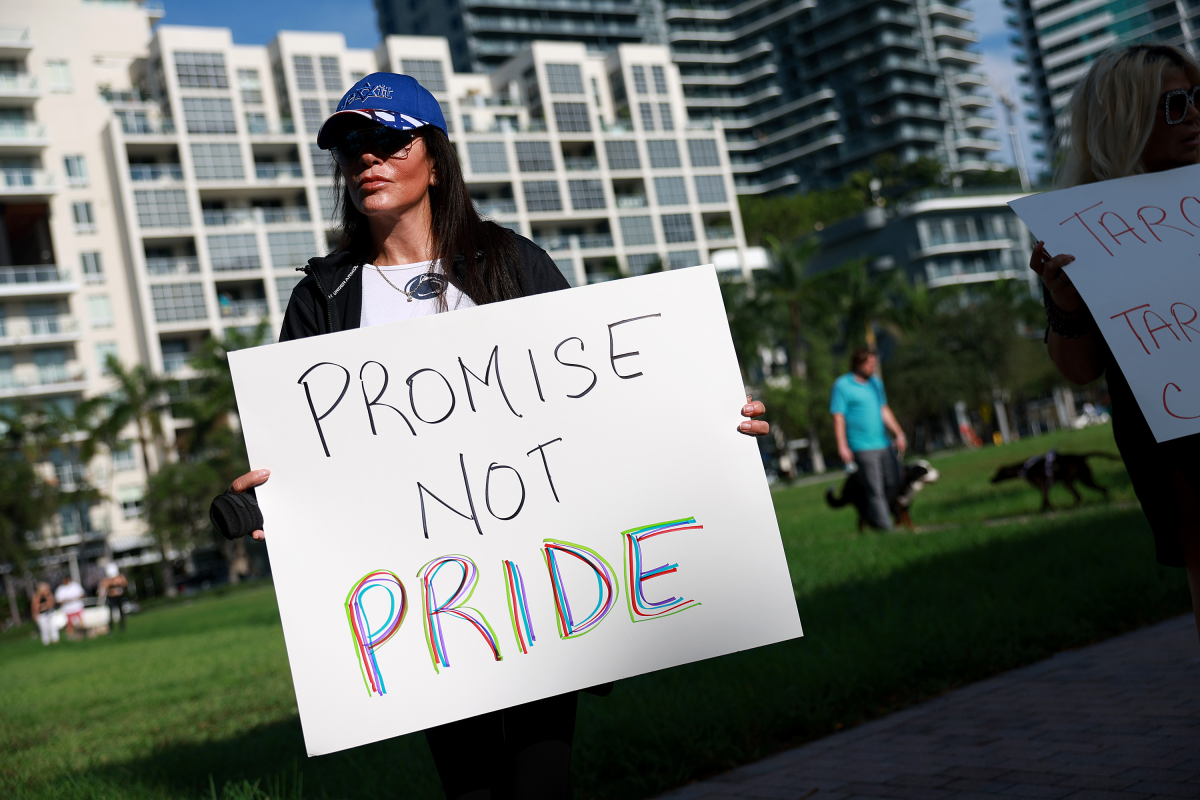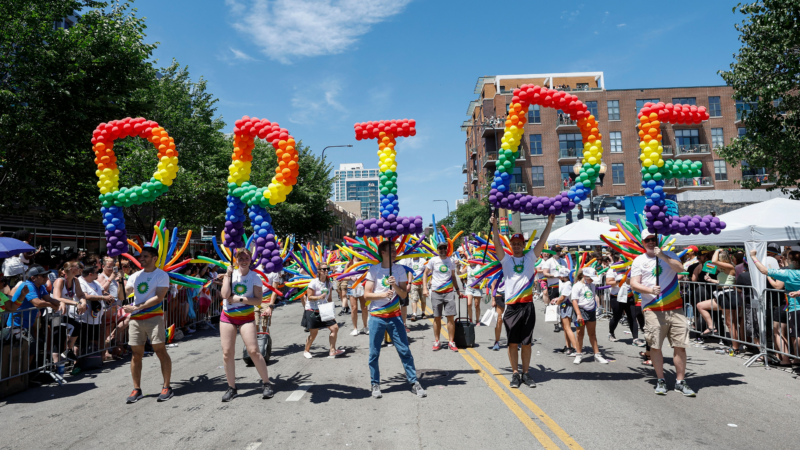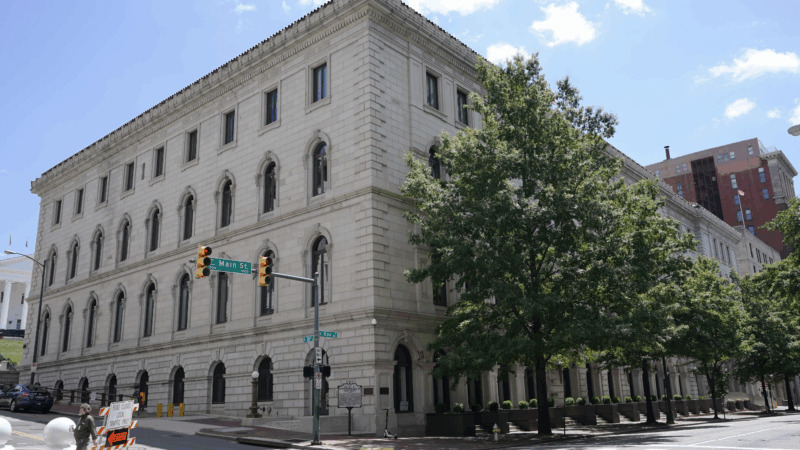Word of the Week: How ‘pride’ shifted from vice to a symbol of LGBTQ empowerment
Pride month is less than a week away — a time dedicated to celebrating the history, impact and resilience of those in the LGBTQ community.
The first celebrations were organized in the U.S. about 55 years ago. What began in four American cities — New York, Los Angeles, San Francisco and Chicago — is now a global movement with festivities in the U.K., Greece, Hungary, Thailand, Brazil, Mexico, and more.
These events draw massive crowds. In New York City, more than 2 million people attend its annual pride march, according to organizers. While, Brazil’s São Paulo — which is considered home to world’s biggest pride parade — sees an estimated 3 to 5 million people participate each year.
But the word “pride” was not always associated with colorful and lively festivities. Nor was it always a symbol for LGBTQ empowerment and strength.
Where did the word come from?
The first known use of the word “pride” dates back before the 12th century. In its early uses, pride referred to an “inordinate self-esteem” and “an unreasonable conceit of superiority,” according to Merriam-Webster.
During this period, pride was often found capitalized and linked to the Christian concept of the seven deadly sins. In Roman Catholic traditions, some theologians consider pride — or the idea of unchecked self-importance or arrogance — the original and most serious sin.
In the 14th century, the use of the word began to shift toward something more positive, to refer to “a reasonable form of self-respect,” according to Merriam-Webster.
Throughout history, the word “pride” has taken on an array of meanings — ranging from a human emotion to a religious vice to a group of lions that live together. But a little over 55 years ago, the word took on a new meaning.
How did the word become associated with the LGBTQ community?
Years before the Stonewall Uprising, the concept of gay pride was starting to emerge within the LGBTQ community, according to Marc Stein, a history professor at San Francisco State University who has written six books on LGBTQ history.
“ There was even a group in Los Angeles that was founded in 1966 — so three years before Stonewall — that used P.R.I.D.E. as its acronym,” he said. “ It stood for Personal Rights In Defense and Education.”
Stein added that “gay pride” and “gay power” were influenced by “Black pride” and “Black power” terms associated with the civil rights movement.
Then in 1969, New York City police raided the Stonewall Inn — a bar known to welcome gay patrons. The confrontation led to six days of protests by members of the LGBTQ community and their allies. The demonstrations captured national attention and became a turning point in the push for LGBTQ civil rights.

A few months later, the idea for an annual march to commemorate the Stonewall Uprising was born. In New York City, it was organized by the Christopher Street Liberation Day Committee.
In the planning stage, there was some debate on what the unifying slogan should be. Some organizers were in favor of “gay power.” But the late organizer L. Craig Schoonmaker argued for “pride,” he told The Allusionist in 2015.
“There’s very little chance for people in the world to have power. People did not have power then; even now, we only have some,” he said. “But anyone can have pride in themselves, and that would make them happier as people, and produce the movement likely to produce change.”
Schoonmaker was not referring to pridefulness, but rather a sense of self-esteem. Soon it was reflected in the march’s rallying cry, “Say it loud, gay is proud.”
Embracing “pride” was especially powerful for the LGBTQ community. “ Pride was a really good way to say ‘no, we’re not sinful. We’re not diseased. We’re not negative. We’re not bad,'” Stein said.
It took a few more years for “pride” to become the prevailing name for marches and parades. Schoonmaker believed it was because LGBTQ individuals themselves internalized shame.
“A lot of people were very repressed, they were conflicted internally, and didn’t know how to come out and be proud,” he said.

In 1999, President Bill Clinton declared June as Gay and Lesbian Pride Month. Nine years later, President Barack Obama adapted the designation to a more inclusive name, Lesbian, Gay, Bisexual and Transgender Pride Month.
Over the years, there have been flares of debate about the use of the word “pride,” according to Stein. He pointed to a short-lived group in the 1990s called Gay Shame as an example.
“ It grew out of a sense that, all the emphasis on pride can be hard for people who don’t always feel pride in being gay,” he said. “ And that those doubts about pride can come out of doubts, say about the political direction of the LGBT movement.”
Why does the word matter today?
In the decades since the first Pride marches, the LGBTQ community has made significant strides from marriage equality to the repeal of the military’s Don’t Ask, Don’t Tell policy. But in recent years, that progress and visibility have also been met with pushback.

The American Civil Liberties Union currently tracks over 580 anti-LGBTQ bills in the nation, including restricting gender-affirming care for trans youth, banning drag performances and censoring discussions of LGBTQ people and issues in school.
Major brands like Target and Bud Light have also scaled back their Pride merchandise after facing backlash for partnering with LGBTQ influencers.

This year, in particular, organizers for pride events, including in San Francisco and Houston, are seeing corporate sponsors pull out or give less of financial support. (Some organizers have since said individual donations have helped fill their funding gaps.)
This year’s Pride Month also comes a few months into President Trump’s second term. GLAAD described Trump’s first 100 days as a period of “Unprecedented LGBTQ Targeting,” citing the removal of the words “trans” and “transgender” on the National Park Service’s website about the Stonewall National Monument, as well as attempts to ban transgender military service members.
But historian Stein pointed out that progress is rarely linear.
“ I think the strength of the backlash or the backsliding is a measure of how successful the movement had been for 50 years,” he said.
Annual governors’ gathering with White House unraveling after Trump excludes Democrats
An annual meeting of the nation's governors that has long served as a rare bipartisan gathering is unraveling after President Donald Trump excluded Democratic governors from White House events.
Federal judge acknowledges ‘abusive workplace’ in court order
The order did not identify the judge in question but two sources familiar with the process told NPR it is U.S. District Judge Lydia Kay Griggsby, a Biden appointee.
Top 5 takeaways from the House immigration oversight hearing
The hearing underscored how deeply divided Republicans and Democrats remain on top-level changes to immigration enforcement in the wake of the shootings of two U.S. citizens.
Snowboarder Chloe Kim is chasing an Olympic gold three-peat with a torn labrum
At 25, Chloe Kim could become the first halfpipe snowboarder to win three consecutive Olympic golds.
Pakistan-Afghanistan border closures paralyze trade along a key route
Trucks have been stuck at the closed border since October. Both countries are facing economic losses with no end in sight. The Taliban also banned all Pakistani pharmaceutical imports to Afghanistan.
Malinowski concedes to Mejia in Democratic House special primary in New Jersey
With the race still too close to call, former congressman Tom Malinowski conceded to challenger Analilia Mejia in a Democratic primary to replace the seat vacated by New Jersey Gov. Mikie Sherrill.





